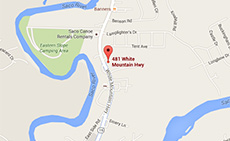Small Business gets a Break on Start Up Expenses
Small Business gets a Break on Start Up Expenses
When and how do I deduct expense incurred before I opened my business?
Most new business and rental property owners will pay or incur expenses for investigating the viability of a business and expenses before actually opening the business or renting the property. These expenditures are known as startup costs and examples include analysis of potential markets and products, advertisements for the opening of the business, salaries and wages for training and education, and other expenditures that would normally be deductible if the business were open. These costs are covered in Internal Revenue Code 195 expenditures and have specific rules on when and how a tax deduction is elected.
The law requires these costs to be capitalized and not automatically deductible in the current year as a periodic cost. However, an election may be made to expense up to $5,000 of these costs in the year in which the business opens. This $5,000 deduction is reduced dollar for dollar once startup costs exceed $50,000. Thus if start up expenditures exceed $55,000 no deduction is allowed. The election is made on Part IV of Form 4562 and is due by the date of the return including extensions. The remaining balance of startup expenses must be amortized over 15 years or 180 months. If the trade or business is disposed of before startup expenses are fully amortized the remaining g costs may be deductible in the year the business closes.
The organization costs of business entities are often confused with startup expenses. Although there are similarities in how they are treated by the IRS they should be segregated. The IRS considers these expenses a separate cost and consequently a separate election is made for organizational costs.
Electing to deduct all or portion of startup expenses depends on the particular situation of the business, the owners of the business, and future operations. You should always speak with your trusted advisors about your particular situation.
Brian is a CPA at Gamwell Caputo Kelsch & Co., PLLC in Conway, NH and can be reached at 603-447-3356. Brian welcomes any article feedback or questions for future article consideration.


